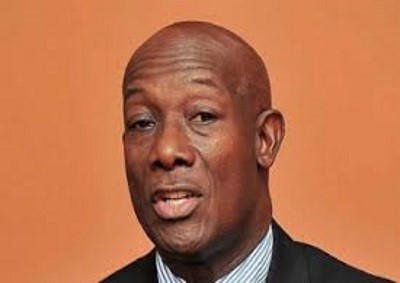PORT OF SPAIN, Trinidad, CMC – CARICOM leaders will meet with the International Cricket Council next month in London to discuss their recently adopted position on the future of West Indies cricket, as they step up pressure on embattled Cricket West Indies to restructure its governance.
St Vincent and the Grenadines Prime Minister Dr Ralph Gonsalves, chairman of CARICOM’s Prime Ministerial sub-committee on cricket, will lead a small delegation of regional leaders who will sit down with cricket’s world governing body in an attempt to convey the “desperate urgency” of the changes required.
According to Trinidad and Tobago Prime Minister, Dr Keith Rowley, CARICOM leaders had adopted legal advice at the two-day Intersessional in Haiti earlier this week, concerning CWI’s right to manage the “public good” of West Indies cricket.
Rowley had indicated last July that CARICOM had sought legal advice and had been assured there was a case to be argued on the basis of CWI, as a private entity, continuing to manage a public good.

“The Heads have now taken a decision that we will now, on the basis of our legal advice – which we have adopted at this meeting – we will approach the ICC and indicate to them the position of the Heads of Government of the region, with respect to our adoption of this position of this public good,” Rowley said here.
“And we trust that in approaching the ICC – to the extent they will talk with us – we will be able to indicate to them … the desperate urgency that is required for West Indies cricket to be saved by this legislative approach to bring best practice to this public good of West Indies cricket.”
He added: “We are of the view that the advice of the lawyers needs to be pursued in a way, not to bring about the management and the operations of the cricket, but to set down proper best practice governance rules for West Indies cricket.”
According to the meeting communique, a move was agreed towards “the development of a legislative framework for the governance of cricket which was consistent with international best practices and with the International Cricket Committee principles.”
The CARICOM delegation, which will include Rowley, will use the occasion of the Commonwealth Meeting in London from April 16-20 to engage the ICC.
Discussions, Rowley said, would be held against “the background of this interpretation of the protection of the public good of West Indies cricket.”
He, however, made it clear that even though CARICOM had agreed to “intervene in the governance of West Indies cricket”, regional leaders had no interest in managing the affairs of the regional game.
“Caribbean politicians represented by the Heads of Government have no interest, desire or requirement to manage the West Indies cricket team or West Indies cricket,” Rowley stressed.
“What we are aiming to do is to intervene to protect this public good by ensuring there is legislative best practice standard arrangements by which this public good can be managed, and that the value of the legacy can be protected, and that there can be a future for West Indies cricket.”
CWI and CARICOM have been at loggerheads ever since the regional grouping intervened in 2014 to help find a solution to the crisis following the Windies abandoned tour of India, which resulted in the Indian Cricket Board (BCCI) slapping the regional governing body with a US$42 million claim for damages.
The friction between the two bodies deepened after a CARICOM-commissioned Governance Review panel, headed by UWI Cave Hill Principal Professor Eudine Barriteau, released a report that branded the CWI structure to be “antiquated”, “obsolete” and “anachronistic”, and called for the “immediate dissolution of the West Indies Cricket Board and the appointment of an Interim Board.”
CWI rejected the recommendation on the basis it was an “impractical” and an “unnecessary and intrusive demand”, and claiming that the panel’s investigations were “limited in scope” and had “triggered findings and recommendations … which are not supported by the facts.”
The Governance Review panel had assessed West Indies cricket as a “public good managed by a private company.”





